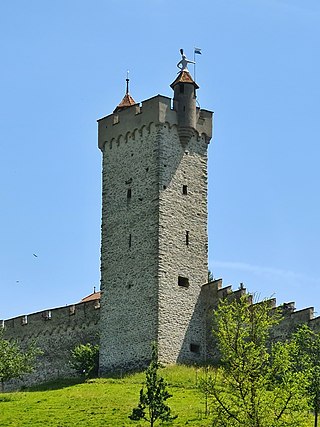13 Sights in Lucerne, Switzerland (with Map and Images)
Legend
Premium Sights
Book tickets, guided tours and activities in Lucerne.
Guided Free Walking Tours
Book free guided walking tours in Lucerne.
Welcome to your journey through the most beautiful sights in Lucerne, Switzerland! Whether you want to discover the city's historical treasures or experience its modern highlights, you'll find everything your heart desires here. Be inspired by our selection and plan your unforgettable adventure in Lucerne. Dive into the diversity of this fascinating city and discover everything it has to offer.
Sightseeing Tours in LucerneActivities in LucerneThe Lion Monument, or the Lion of Lucerne, is a rock relief in Lucerne, Switzerland, designed by Bertel Thorvaldsen and hewn in 1820–21 by Lukas Ahorn. It commemorates the Swiss Guards who were killed in 1792 during the French Revolution, when revolutionaries stormed the Tuileries Palace in Paris. It is one of the most famous monuments in Switzerland, visited annually by about 1.4 million tourists. In 2006, it was placed under Swiss monument protection.
2. Swiss Museum of Transport
The Swiss Museum of Transport or Verkehrshaus der Schweiz in Lucerne opened in July 1959 and exhibits all forms of transport including trains, automobiles, ships and aircraft as well as communication technology. It is Switzerland's most popular museum. The museum also maintains a large collection of work by Hans Erni, a local painter and sculptor.
The Kapellbrücke is a covered wooden footbridge spanning the river Reuss diagonally in the city of Lucerne in central Switzerland. Named after the nearby St. Peter's Chapel, the bridge is unique in containing a number of interior paintings dating back to the 17th century, although many of them were destroyed along with a larger part of the centuries-old bridge in a 1993 fire. Subsequently restored, the Kapellbrücke is the oldest wooden covered bridge in Europe, as well as the world's oldest surviving truss bridge. It serves as the city's symbol and as one of Switzerland's main tourist attractions.
4. Franziskanerkirche
The Franciscan church "St. Maria in der Au" near the city center of Lucerne is dedicated to the Mother of God. It is listed on the list of cultural assets in Lucerne in category A and belongs to the Roman Catholic Church. It is located on Franziskanerplatz and was the church of the former Franciscan monastery.
5. Zivilschutzanlage Sonnenberg
The Sonnenberg Tunnel is a 1,550 m (5,090 ft) long motorway tunnel, constructed between 1971 and 1976 and located in Lucerne, Switzerland. At its completion it was also the world's largest civilian nuclear fallout shelter, designed to protect 20,000 civilians in the eventuality of war or disaster.
6. Bourbaki Panorama
The Bourbaki Panorama is a circular panoramic painting depicting the internment of the French Armée de l'Est in neutral Switzerland at the end of the 1870–71 Franco-Prussian War. The army, led by General Charles-Denis Bourbaki, had been defeated in the field while attempting to raise the Siege of Belfort and fled to Switzerland in the aftermath. The Swiss admitted the French soldiers, and local villagers and the Swiss Red Cross provided aid.
7. Kleintheater
The Kleintheater Luzern is a theatre in Lucerne. The programme consists of cabaret, spoken and dance theatre, children's theatre, music and literature. It is not only known as a stage for already famous cabaret artists, musicians and other stage artists, but since its beginnings as a springboard for still unknown regional stage artists.
8. Auguste Piccard (PX 8)
The Auguste Piccard mesoscaphe, also known simply as the Mésoscaphe, was a crewed underwater submarine designed in 1964 by Jacques Piccard, son of Auguste Piccard. It was the world's first passenger submarine, built for Expo64, the 1964 Swiss national exhibition in Lausanne. It was built at the Giovanola fabrication plant in Monthey and the first immersion took place in Le Bouveret on 27 February 1964. It has a total of 45 Plexiglas portholes, with 20 on each side for the 40 passengers.
9. Dreilindenpark
With an area of 35,000 m2, Dreilindenpark is the largest public park in the city of Lucerne. It is located on the Dreilinde, a hill between the city and Dietschiberg with a view of Lake Lucerne and the mountain panorama. In the garden area, the complex includes the castle-like villa "Vicovaro", a farm building, a gatehouse as well as an artificial gate ruin, various marble sculptures and a grotto. The park, the villa and the outbuildings are noted on the list of cultural assets in Lucerne as nationally significant.
10. Kunstmuseum Luzern
Kunstmuseum Luzern, is an art museum founded in 1932, and is located within the Lucerne Culture and Congress Centre. It is one of the most important art museums in Switzerland known for its temporary rotating exhibitions of all genres, including contemporary art.
11. St. Leodegar im Hof (Hofkirche)
The Church of St. Leodegar is a Roman Catholic church in the city of Lucerne, Switzerland. It was built in parts from 1633 to 1639 on the foundation of the Roman basilica, begun in 735, which had burnt in 1633. This church was one of the few built north of the Alps during the Thirty Years War and one of the largest art history rich churches of the German late renaissance period.
12. Wilhelm Tell
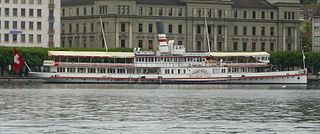
The Wilhelm Tell is a paddle steamer on Lake Lucerne in Switzerland. She was operated by the Lake Lucerne Shipping Company (SGV), decommissioned in 1970 and has served as a stationary restaurant ship on the Schweizerhofquai in Lucerne since 1972. It is listed on the list of cultural assets in Lucerne as regionally significant.
13. Männliturm
The Männliturm is one of nine towers of the Musegg Wall in the city of Lucerne. It is located between the Nölliturm and the Luegislandturm. The tower is named after the "iron man", a half-figure of a two-metre-high armoured warrior with a flag and sword. This forms the top of one of the two oriel turrets in the crenellated wreath.
Share
Disclaimer Please be aware of your surroundings and do not enter private property. We are not liable for any damages that occur during the tours.
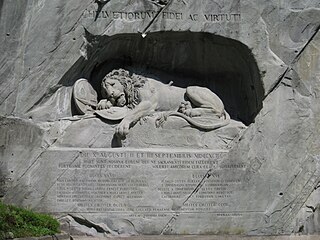

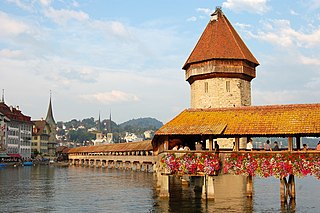
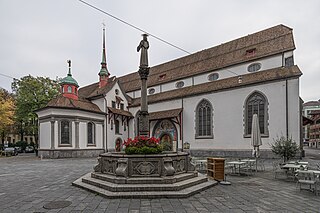
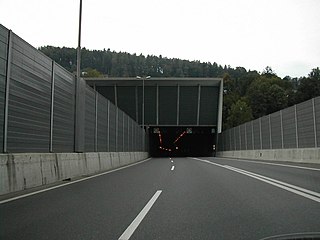
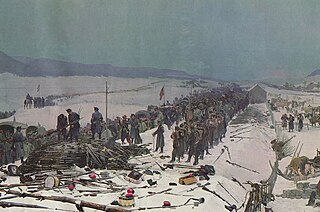
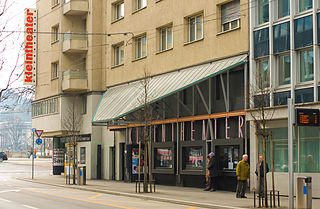
.jpg)
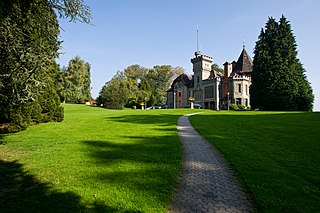
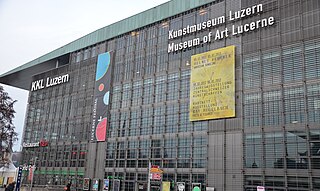
.jpg)
